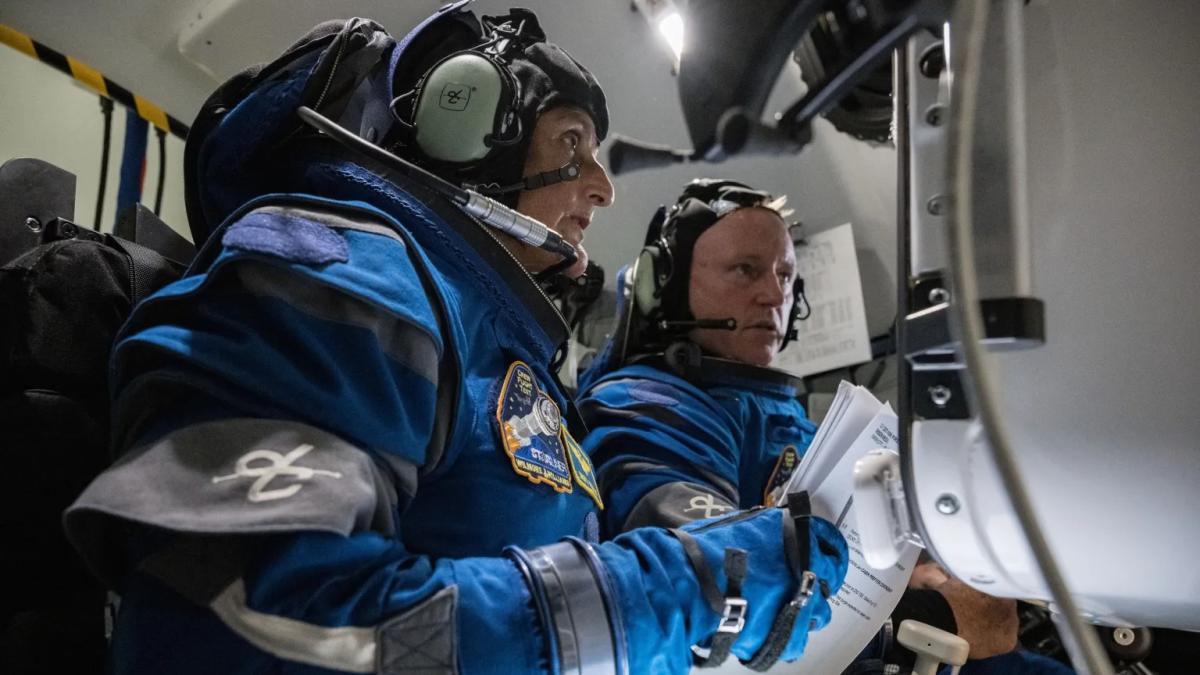The women’s professional tennis tour will hold its season-ending WTA Finals in Saudi Arabia for the next three years, marking the latest step in the country’s huge investment in the elite level of the sport.
WTA Tour chief executive Steve Simon made the announcement in a statement released on Thursday, following more than a year of discussion with Saudi officials. The WTA was close to a deal with Saudi Arabia last summer but pivoted at the last minute amid public pressure from some of the most prominent women in the sport. They criticized the tour for choosing money over principles and doing business in a country with a history of repressive laws against women, that criminalizes homosexuality and free speech, and that in 2018 murdered Jamal Khashoggi, a dissident journalist who had travelled to the Saudi consulate in Istanbul, Turkey, to get documents he needed for a marriage license.
The WTA Finals deal is part of Saudi Arabia’s efforts to become a major destination for international sports and could also signal the beginning of the country landing more official tennis events, rather than the lucrative exhibitions that have taken place there in the past. In recent years, the government has been spending millions of dollars to tempt many of the best players in the world, especially on the men’s side. In December, some of the biggest stars in the sport, including Novak Djokovic, Carlos Alcaraz, Aryna Sabalenka and Ons Jabeur, played an exhibition in Riyadh, the Saudi capital, and the country’s Public Investment Fund is currently bidding to host a top-level Masters tournament that would likely include both men and women as soon as 2026.
The WTA was founded half a century ago by Billie Jean King and eight other women committed to equality for women both on and off the court. With a proud history of openly lesbian, gay, bisexual, transgender and queer champions, partnering with Saudi Arabia will, fairly or unfairly, surely garner a significant backlash from some of the sport’s biggest stars, such as the 18-time Grand Slam singles champions Martina Navratilova and Chris Evert. For more than a year, leaders of the WTA Tour have tried to balance those sentiments with its needs to shore up its finances following the lean years of the Covid-19 pandemic and demands from players to receive the same prize money as the ATP Tour awards the men.
(Marvin Joseph/The Washington Post via Getty Images)
Saudi Arabia’s tennis federation and the country’s sports ministry have committed to awarding $15.25million (£12m) at the WTA Finals in 2024, with further increases in 2025 and 2026. That prize money is $6.25million more than what the top women players received at the 2023 event in Cancun and is on par with what the men will receive at the 2024 ATP Finals in Turin, Italy. The Saudi contract is significantly shorter than previous deals the tour has signed with cities to host its premiere event, giving both sides the flexibility to move on relatively quickly if the tournament proves a poor fit.
“We do compete in many countries that certainly reflect different cultures and value systems,” said Steve Simon, the chief executive of the WTA Tour. “We certainly understand and respect that Saudi is something that provokes some very strong views.”
Simon said tour officials have spoken with Navratilova and Evert and understand their concerns, especially those involving women’s rights and LGBTQ+ rights. “We’re sensitive to those,” he said. “We do have assurances that everyone’s going to be welcome at the finals and I don’t anticipate anything more than positive experiences. We have assurances that everybody is welcome in the country to come and compete and work and do what needs to be done. They don’t judge anyone coming in. We’ve checked with past events that have happened within the region, such as other athletes that have been there, and they’ve only had positive experiences.”
Such assurances have never been enough for Navratilova, who in recent weeks has doubled down on her position that Saudi Arabia, despite some loosening, has not done nearly enough to put women on equal footing or to decriminalize homosexuality and allow freedom of speech and expression.
“Bigger change needs to happen first,” Navratilova said in an interview last month.
Current players, too, have voiced misgivings.
“Definitely don’t support the situation there,” Coco Gauff, the reigning U.S. Open women’s singles champion, said in January. “But I hope that if we do decide to go there, I hope that we’re able to make change and improve the quality there and engage in the local communities and make a difference.”

(Clive Brunskill/Getty Images)
Simon said he had received assurances that there would be opportunities for players to meet and work with young female players and athletes within the region.
“Hosting the WTA Finals is absolutely huge for the future of tennis in Saudi Arabia and growing sport in general, especially amongst our young girls,” Arij Mutabagani, president of the Saudi Tennis Federation and the first elected female president of any Saudi Arabian sports federation, said in a statement. “That’s entirely our focus, to inspire future generations of players and celebrate women’s tennis. We want to help them to believe that they too belong on Centre Court, as seeing is believing. Through the tournament, we have the potential to power the dreams of millions of young people who are looking to a bright future and a world of new opportunities.”
There is no guarantee, though, that large numbers of people will ultimately see the competition. Saudi Arabia is hardly a top tourist destination. Also, television executives have for years complained about the devil’s bargain the WTA has made in collecting lucrative payments to bring its tournaments to countries where creating interest in tennis is still a work in progress. Players get plenty of prize money but play in front of half-empty stadiums, which makes the events look unappealing and small-time to the rest of the world.
There are no guarantees that fans will show up in Riyadh, but Simon said the Saudis were as “committed as we are to build and have good attendance for the event.”
That would play into another major focus for Saudi Arabia’s recent string of investments in sports — to shift its image and economy from one built largely around petroleum into that of a modern society with broad cultural and economic interests that is open to the world.
In soccer, Saudi’s Public Investment Fund (PIF) purchased the Premier League team Newcastle United in 2021 and some of the biggest names in soccer have moved to clubs in the Saudi Pro League, including Cristiano Ronaldo and Karim Benzema. Saudi Arabia is also set to host the 2034 World Cup.

(Yasser Bakhsh/Getty Images)
In golf, Saudi Arabia pledged to spend $2billion on a new competition, LIV Golf — again attracting some of the sport’s biggest names to take part — and the country has become the home of elite boxing in recent years. Formula 1 has held races in the city of Jeddah since 2021 and there has also been considerable Saudi investment in Formula E. The country also hosted the ATP Tour’s Next Gen Finals — which pits the best young male tennis players against one another.
Saudi Arabia has passed a series of reforms in recent years aimed at making women a more substantial part of public life, including allowing them to drive, own businesses, and socialize in public with men. But it has maintained other restrictions. Women cannot marry without the permission of a male guardian and must obey their husbands if those men do not want to allow them to practice the rights the government has granted. The laws against homosexuality remain, as they do in other countries in the region. That has not prevented the WTA from holding tournaments in Qatar and the United Arab Emirates.
Despite all that, the government and the WTA scored a major coup last June when Billie Jean King, who is gay and married to a woman, Ilana Kloss, threw her support behind the idea of the WTA holding its signature event in Saudi Arabia. King argued that engaging with countries that do not share the same beliefs is the only way to bring about change.
Beyond tennis, others have cited that argument in regards to western financial ties to China, Saudi Arabia and other countries that severely restrict basic human rights. However, especially in the case of China, crackdowns on human rights have worsened in recent years despite growing investment from the U.S. and other western nations. In addition, the policy of isolation and boycotts has a record of success. The international sports and entertainment industries largely boycotted South Africa through decades of apartheid. The country’s government finally abandoned it in the early 1990s amid worldwide pressure and a declining economy.
“We fully appreciate the importance of respecting diverse cultures and religions,” Evert and Navratilova wrote in an opinion piece in The Washington Post in January. “It is because of this, and not despite it, that we oppose the awarding of the tour’s crown jewel tournament to Riyadh. The WTA’s values sit in stark contrast to those of the proposed host.”
Sport, though, has since been largely unable to resist the largesse that such countries have offered and the WTA was no different. The tour has needed to find new investors and sources of cash for years, especially since Shenzhen, China, terminated its 10-year deal with the tour. That termination was in response to the tour’s decision to boycott the country for 18 months over China’s refusal to investigate whether a former top government official had sexually assaulted the former doubles player Peng Shuai.

(Clive Brunskill/Getty Images)
The WTA has been reeling since the pandemic hit in 2020 when its players competed for months in largely empty stadiums. Last year, it sold a 20 per cent stake in its business to CVC Capital Partners, the Luxembourg-based private equity firm, for $150million. The last-minute scramble last fall to hold the WTA Finals in Cancun, Mexico, outdoors during the rainy season, turned out to be disastrous. Players complained of a shoddy and unsafe court. The stands were largely empty through much of the week.
Most players initially expressed varying degrees of resistance or ambivalence to going to Saudi Arabia. In June, Sloane Stephens, a former member of the Player Council, said players needed to be certain that everyone would feel safe and the tour had yet to ensure them that was the case.
In recent months though, players have spoken about Saudi’s involvement in the sport as inevitable. They have adopted King’s line about being a part of the process of pushing for changes that can make the lives of the current generation of girls in Saudi Arabia different from those women who came before them. To generate more enthusiastic support, the WTA in recent weeks has facilitated discussions among top players and prominent women from the region, who explained how the event could fit in with the larger dynamics of a changing world.
“We’ve had some of those conversations with the leading women within the region and the players who have shared their experience and shared the significant changes that are happening and have made some suggestions that are being worked on right now,” Simon said. “I believe we’ll have a very comprehensive program.”
(Top photo: Tom Pennington/Getty Images for WTA)

Daniel Miller is a sports fanatic who lives and breathes athletics. His coverage spans from major league championships to local sports events, delivering up-to-the-minute updates and in-depth analysis for sports enthusiasts.






